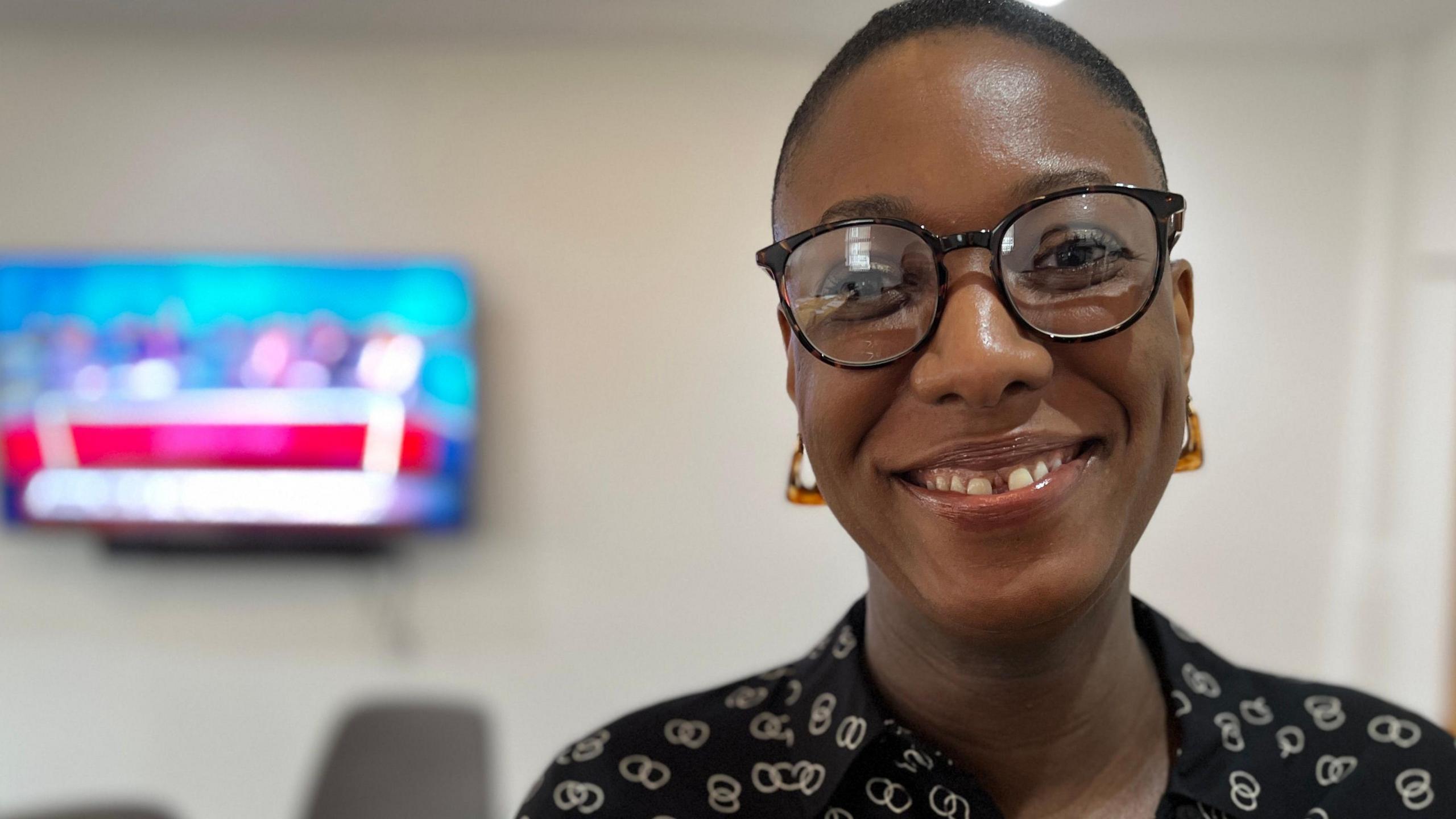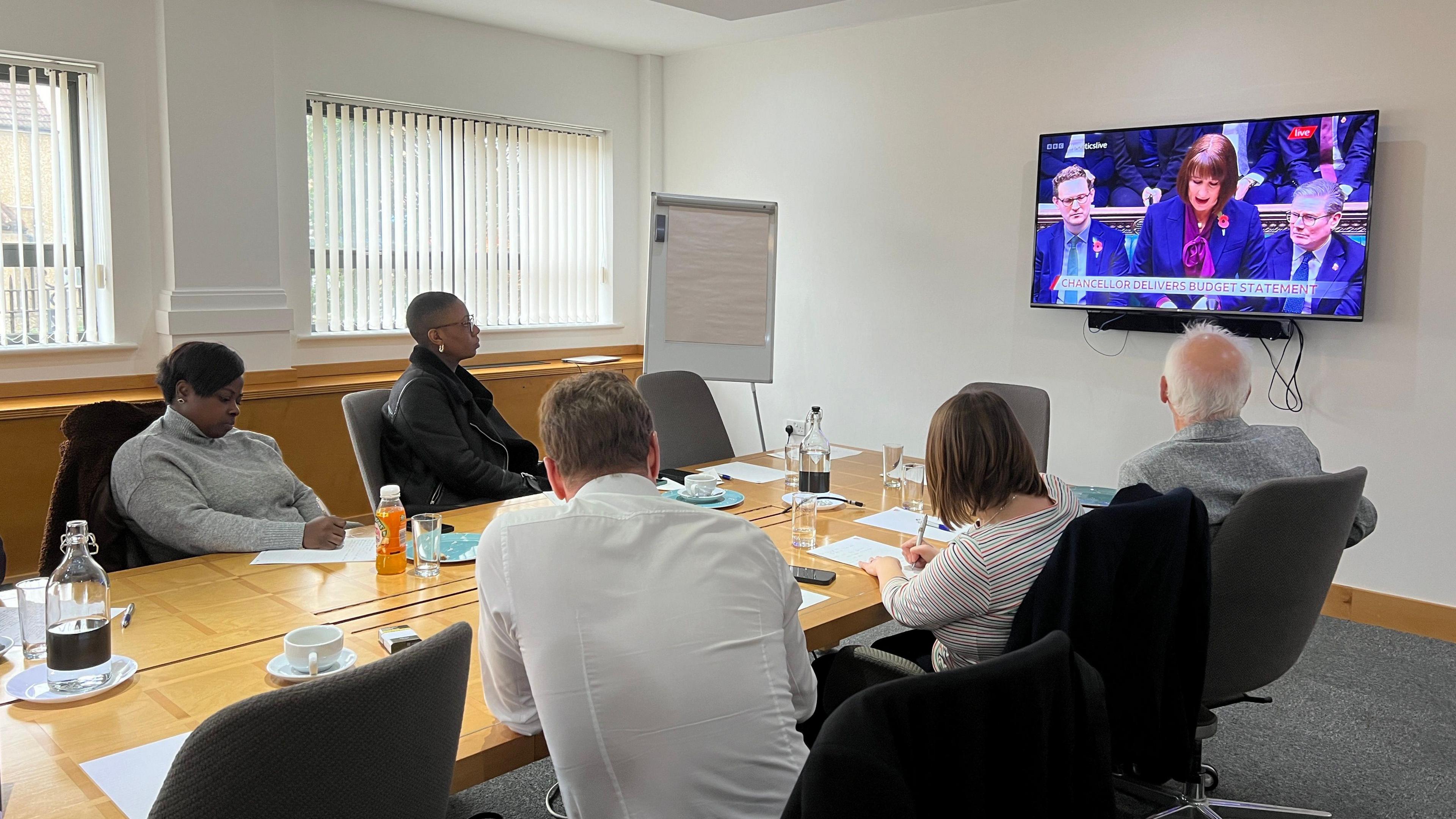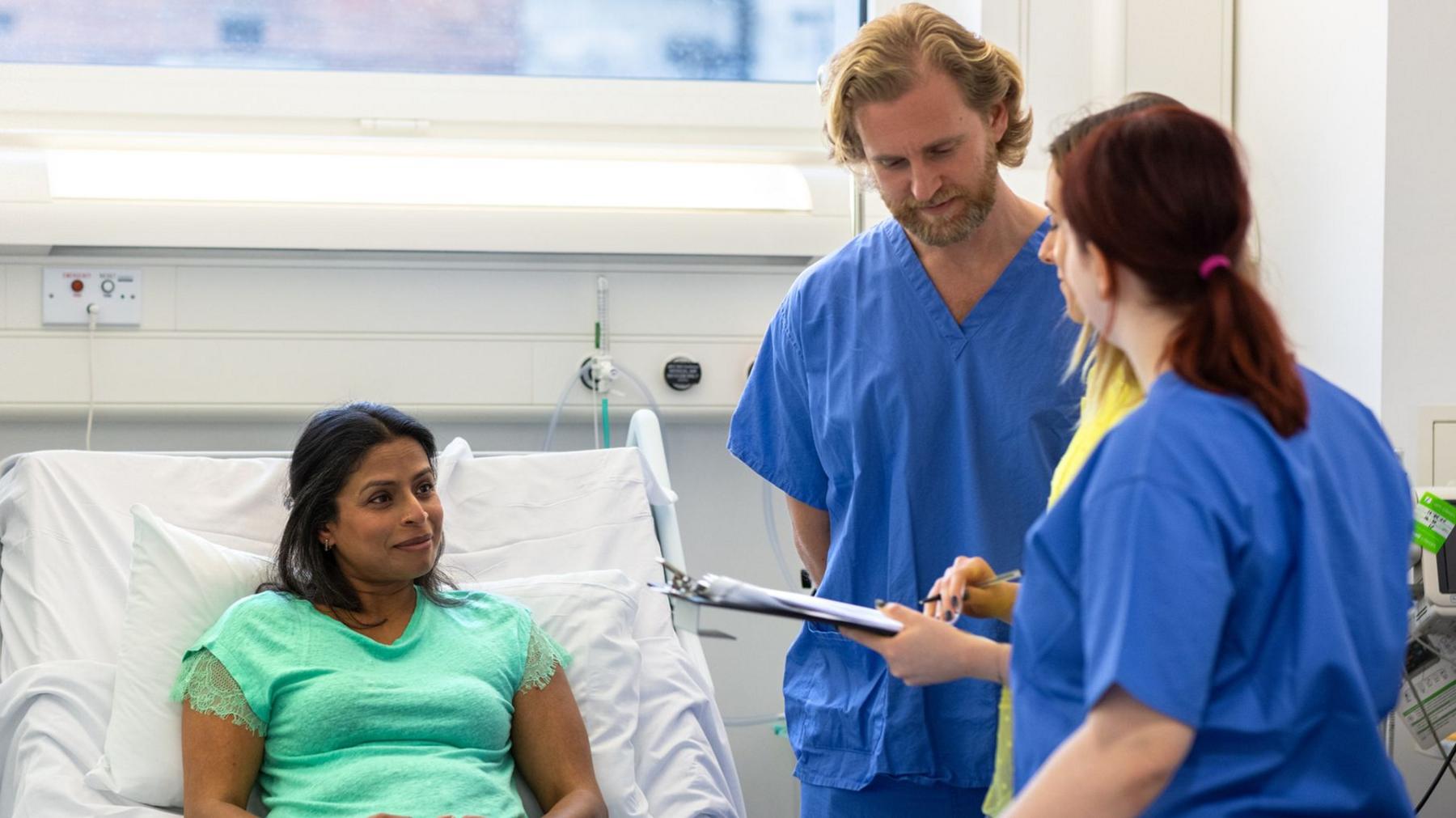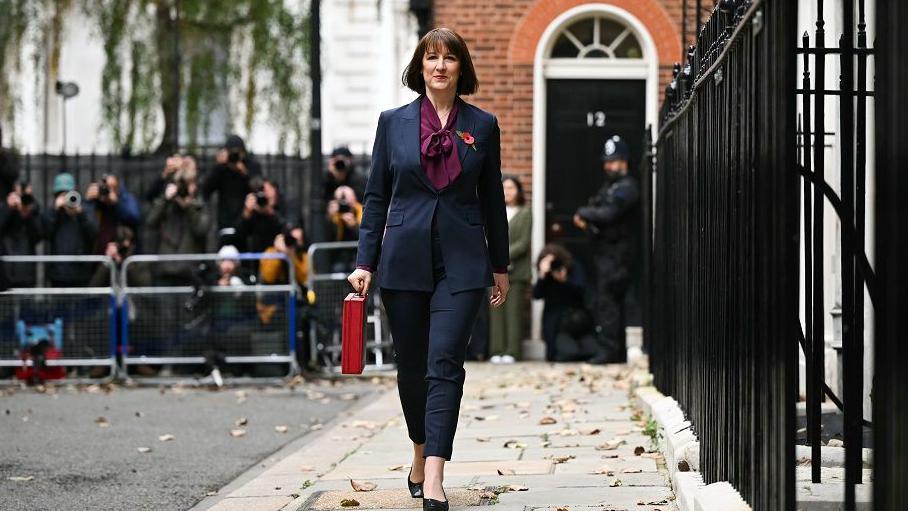'The Budget was not as painful as we expected'

The group spoke about the difficulty accessing health services in their local area
- Published
It is midday and a group of Thurrock residents who work in the care and charity sectors, run shops and sell houses, have come together to watch the first female chancellor deliver a budget.
There is a nervousness and even a little fear in the room about whether they will have to shoulder the burden of tax measures to raise billions.
In July Thurrock elected its first Labour MP for nearly two decades.
Known for having a bankrupt local council that still has a £1bn debt, the borough is situated between London and Essex. It has a younger population and lower unemployment level than the national average.
As Rachel Reeves got under way, the mood in the Old Courthouse at the top of Grays High Street changed.

Nicole Lawal said she was expecting a "quite scary" budget statement but was "pleasantly surprised"
Nicole Lawal is working on opening a nursery in either Tilbury or Grays. She said she was "pleasantly surprised" by Labour's first budget in 14 years.
"I think we were all geared to something quite harsh and really quite scary. But actually it was OK," she said.
The mother-of-four welcomed investment in breakfast clubs.
"I'm also looking forward to that 10-year plan of moving hospitals into the community."
Ms Lawal used to work in maternity services but left and established Thurrock-based charity Bumps, Births and Belonging which currently supports up to 70 Afro-Caribbean families with pregnancy and babies.
She founded the charity in response to the higher mortality rate of black women giving birth in the UK.

Local business owners and charity workers in Thurrock gathered to watch the Budget
Before the chancellor stood up in the Commons, conversation among the group was about the difficulty in accessing health services, with some heading over the Dartford Crossing to Kent or going private.
Thurrock's health services are stretched, with 3,431 patients to every GP - the worst ratio in England. It can sometimes take weeks to get a blood test.
The £22bn extra for the NHS, which is an increase of about 4% above inflation, was cautiously welcomed by musician Dean Plunkett, but he questioned how quickly it would be implemented and if it would reduce waiting times.
Neil Woodbridge who runs a social enterprise supporting disabled people, said the money was "astonishing" but added: "At the same time, no mention of social care."
John Paddick, who is self-employed and runs several charities, was sceptical money alone could fix the NHS. "My fear is, having seen the quality of commercial management within the NHS, money alone is not going to fix it," he said.

Musician Dean Plunkett questioned how quickly the extra NHS money would lead to improvements
'I don't like the move on pensions'
Mr Paddick said the budget "didn't feel quite as painful as people were expecting" but worried his family would be hit by inheritance tax changes.
He said: "I don't like the move on pensions inheritance. Bringing self-invested pension plans into inheritance tax. I don't see why they should be taxed further when my children get them."
Under the measures announced, Mr Paddick said his children would face paying £400,000 in inheritance tax in the event of his death.
Estate agent Colin Owen thought the budget was "quite positive" after being "fearful that it would go a lot further than it did".
As someone who earns part of his income from rent and shares, he was worried he would face a higher rate "but that fear didn't come true".
His estate agents will have to pay higher national insurance contributions for his staff but "it isn't as bad as we thought it could be" and is expected to be a few hundred pounds extra a month.
'We spend £36,000 a month on NI'

Neil Woodbridge said his social enterprise that employs 200 carers would "carry a lot of this tax burden"
The chancellor announced employers' National Insurance contributions would rise from 13.8% to 15% and the threshold at which businesses started paying it on a workers' earnings would be lowered from £9,100 to £5,000.
Lowering the threshold will affect Mr Woodbridge's social enterprise Thurrock Lifestyle Solutions, which employs 200 staff to support local disabled people.
"As a business I get very anxious. We spend £36,000 a month on National Insurance. I suspect it will go up by three or four thousand," he said.
Mr Woodbridge was worried about having to pay contributions for part-time staff.
"We are going to carry a lot of this tax burden and it's going to be hard-hitting for us," he said.
Gina Bonsu is about to employ more staff as she opens a restaurant alongside her Mama G's Afro-Caribbean supermarket.
"If there were higher increases in National Insurance, that would have affected how many employees I took on," she noted.
While she will have to pay the higher National Living Wage for staff, Ms Bonsu said it was a "good thing" for her children and the young people she works with.
Ann Scott from the Federation of Small Businesses in Essex concluded: "Speaking to a lot of the businesses in the room today, I think they were bracing themselves for a very, very tough time.
"Some of the measures will shield businesses from the pain."
Get in touch
Do you have a story suggestion for Essex?
Follow Essex news on BBC Sounds, Facebook, external, Instagram, external and X, external.
- Published30 October 2024

- Published30 October 2024

- Published31 October 2024
